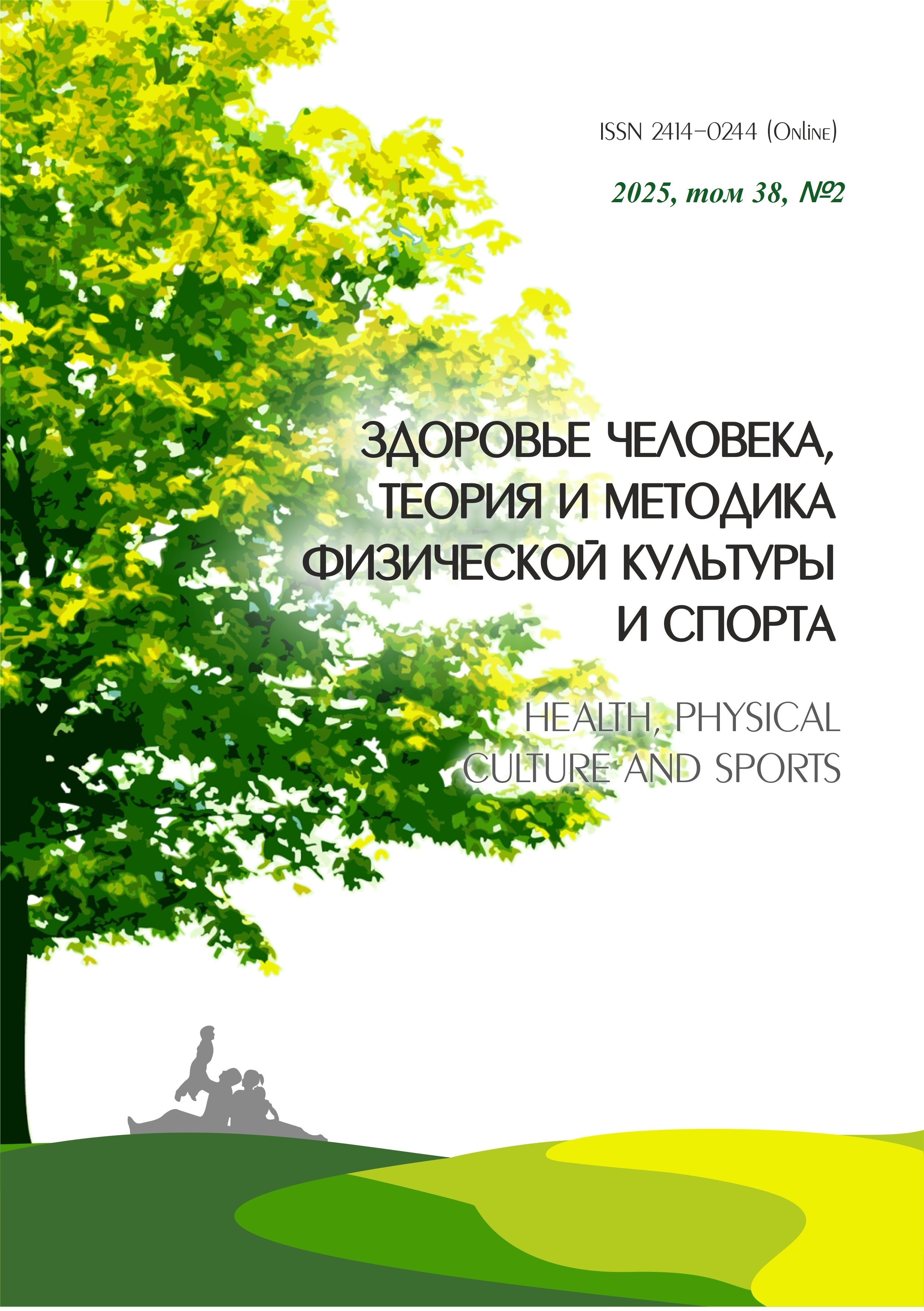INTERRELATION OF PERSONALITY TRAITS AND MOTIVATION FOR SPORTS ACTIVITY IN YOUNG MEN
Abstract
Motivation occupies a leading place in the personality structure and plays a key role in athletes achieving high results. Thanks to her, athletes overcome difficulties and meet the high demands placed on them. The motivation of an athlete is determined by needs, goals, worldview, personality orientation and personal characteristics. For this reason, motivation to play sports is the most important factor reflecting interest and conscious attitude towards sports. In his research, R.A. Piloyan identifies a weakening of motivation as one of the main reasons for athletes to stop training.
Achievement motivation is of particular interest because athletes' high performance is closely related to it. The authors note that the motivation to achieve success in highly qualified athletes is more pronounced than the motivation to avoid failure. To form athletes' achievement motivation, it is important to study the factors contributing to its formation. Based on the above, the purpose of this study was to identify the relationship between personality traits and motivation for athletic activity in young men.
The following questionnaires were used as research methods: S.A. Shapkin's achievement motivation questionnaire; A.V. Shaboltas' Motives for Sports questionnaire; and the five-factor personality questionnaire (adapted by A.B. Khromov).
The T-criterion and the statistical data processing software package "SPSS" were used for data processing.
The results show that athletes who are motivated by achievement have personality traits such as activity, dominance, sociability, the ability to cooperate, respect for others, as well as a sense of responsibility and perseverance.
In addition, it was found that achievement motivation is related to the desire to receive emotional satisfaction from playing sports. This suggests that the joy of physical exercise and sporting events can stimulate athletes to achieve their goals.
Downloads
References
Белозерова Л. А., Брагина Е. А., Николаева И. А. Мотивация достижения и преодоление стрессовых ситуаций студентами-спортсменами // ТиПФК. 2023. №3 С. 33-35.
Бочарова Елена Евгеньевна Социально-психологические детерминанты мотивации достижения в учебной деятельности // Изв. Сарат. ун-та Нов. сер. Сер. Философия. Психология. Педагогика. 2009. №1 С. 60-65.
Брайент Дж., Кретти А. Психология в современном спорте. — Москва : Физкультура и спорт, 1978. — 224 с
Дрожалкин В.А. Спортивная мотивация как ведущий фактор результативности в спортивно-соревновательной деятельности // Современные научные исследования и инновации. 2015. № 4. Ч. 5.
Ильин Е. П. Психология индивидуальных различий. — СПб. : Питер, 2004. — 701с.
Ильин Е. П. Психология спорта. — Санкт-Петербург : Питер, 2010. — 352 с.
Ильин Е.П. Мотивация и мотивы. — СПб.: Питер, 2011. 268 с.
Кузьмин Е. Б., Денисенко Ю. П., Драндров Г. Л. Формирование спортивной мотивации как психолого-педагогическая проблема // Педагогико-психологические и медико-биологические проблемы физической культуры и спорта. 2009. №4 (13).
Ловягина А.Е., Ильина Н.Л., Медников С.В. Психология физической культуры и спорта – M.: Юрайт. 2023.
Макклелланд Д. Мотивация человека. —СПб.: Питер, 2007. 259 с.
Набойченко, Е. С., Носкова М. В., Шершнев В. Н. Психическая устойчивость спортсменов высших достижений в индивидуальных и командных видах спорта как ключ успешной спортивной деятельности // ПНиО. — 2022. — № 6 (60). — С. 445–458.
Носкова М. В. Психическая устойчивость и мотивация достижения успеха у спортсменов.//Ученые записки университета имени П.Ф. Лесгафта. 2024. Nº 9 С. 285-289.
Обуховский К. Психология влечений человека. — Москва : Прогресс, 1971. — 247 с.
Сиденко Е. А. О некоторых теоретических аспектах формирования у работников образования мотивации достижения // Инновационные проекты и программы в образовании. 2012. №4 С. 35-48.
Таран В. А., Щербина В. А. Роль мотивации в спортивных достижениях // МНКО. 2014. №4 (47) С 47-48.
Туровский В. Ф., Корягина Ю. В., Блинов В. А. Психофизиологические особенности футболистов различного игрового амплуа // ТиПФК. 2013. №7 С. 68-72.
Biglari S., Sanatkaran A., Bahari S.M., Montazeri M. The Comparison of Team and Individual Male Athletes, Mental Toughness at Different Levels of Skills // International Journal of Basic Sciences and Applied Research. 2015. Nº 2. P. 127-132.
Elmaqd M.A. General Psychological Factors Affecting Physical Performance and Sports // International Journal of Physical Education, Sports and Health, 2016, P. 255-264.
Krems J. A., Kenrick D. T., Neel R. Individual perceptions of self-actualization: What functional motives are linked to fulfilling one's full potential? Personality and Social Psychology Bulletin, 2017, Nº 43, 1337-1352. https://doi.org/10.1177/0146167217713191.
An author should not normally publish manuscripts describing essentially the same research in multiple journals or publication venues. Such redundant publication is generally considered to constitute unethical publishing behavior, and if discovered may result in a manuscript under consideration being rejected, or a published article being retracted.
Authors of manuscripts reporting on original research should present an accurate account of the work performed, accompanied by an objective discussion of its significance. Underlying data should be represented accurately in the manuscript. The manuscript should contain sufficient detail and references to permit others to replicate the work. The fabrication of results and the making of fraudulent or knowingly inaccurate statements constitute unethical behavior and may be cause for rejection or retraction of a manuscript or published article.





